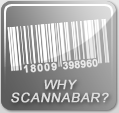25 Common Scams That Loot Your Liquid Assets and Rob You of Revenue
Bartenders are a varied lot. Many are upstanding, loyal, hard-working men and women looking to make an honest living. Others seem to spend as much time concocting ways to scam you out of your rightful profits as they do concocting cocktails. It's important that you look out for this latter lot. They can hurt your business.
There are a great many ways that a dishonest employee can take away from your profits. So many ways, in fact, that it would be nearly impossible to create an exhaustive list. Here are 25 of the more common bartender ploys to watch out for:
-
The Short Ring - Under-ring the correct price of item and pocket the difference.
-
The Phantom Register - Extra register put in bar and items not rung in on main register.
-
Serve and collect while register is reading between shift changes.
-
Claim a phony walk-out. Keep money received from customer.
-
The Phantom Bottle - Bartender brings in his own bottle and pockets cash from the sale.
-
Collusion between cocktail server and bartender.
-
Using one shot on two glasses.
-
Claim a returned drink - Extra drink is sold and cash is pocketed.
-
Undercharge customers or free liquor in hope of large tip.
-
Re-Using register drink receipts.
-
Bartender exchanges drinks to cooks for dinners.
-
Adding water (diluting) liquor to get more shots out of it and pocketing the cash.
-
Using lower priced liquor and charging for call brands.
-
Charging customer regular prices, ringing happy hour prices.
-
Giving free drinks to employees in exchange for higher tips.
-
Claiming opening bank till was short.
-
Hitting "no sale" key to open register and pulling money out later.
-
Ringing items on another bartender or manager key.
-
Re-using empty bottles to get new inventory out of storeroom without suspicion.
-
Not ringing in cocktail server sales and splitting the money.
-
Under-pouring drinks by a sixth, keeping track, and pocketing the cash for one drink every sixth drink.
-
Using jiggers brought in from home that is smaller than standard pour, with the same objective as above.
-
Substituting a house brand for a premium brand (that usually sells at a higher price), charging for the premium brand, and pocketing the difference.
-
Overcharging the number of drinks served to a group of customers who are running up a tab to be paid later.
-
Claiming a fictitious walk-out.







